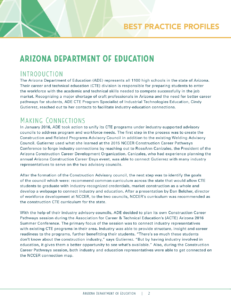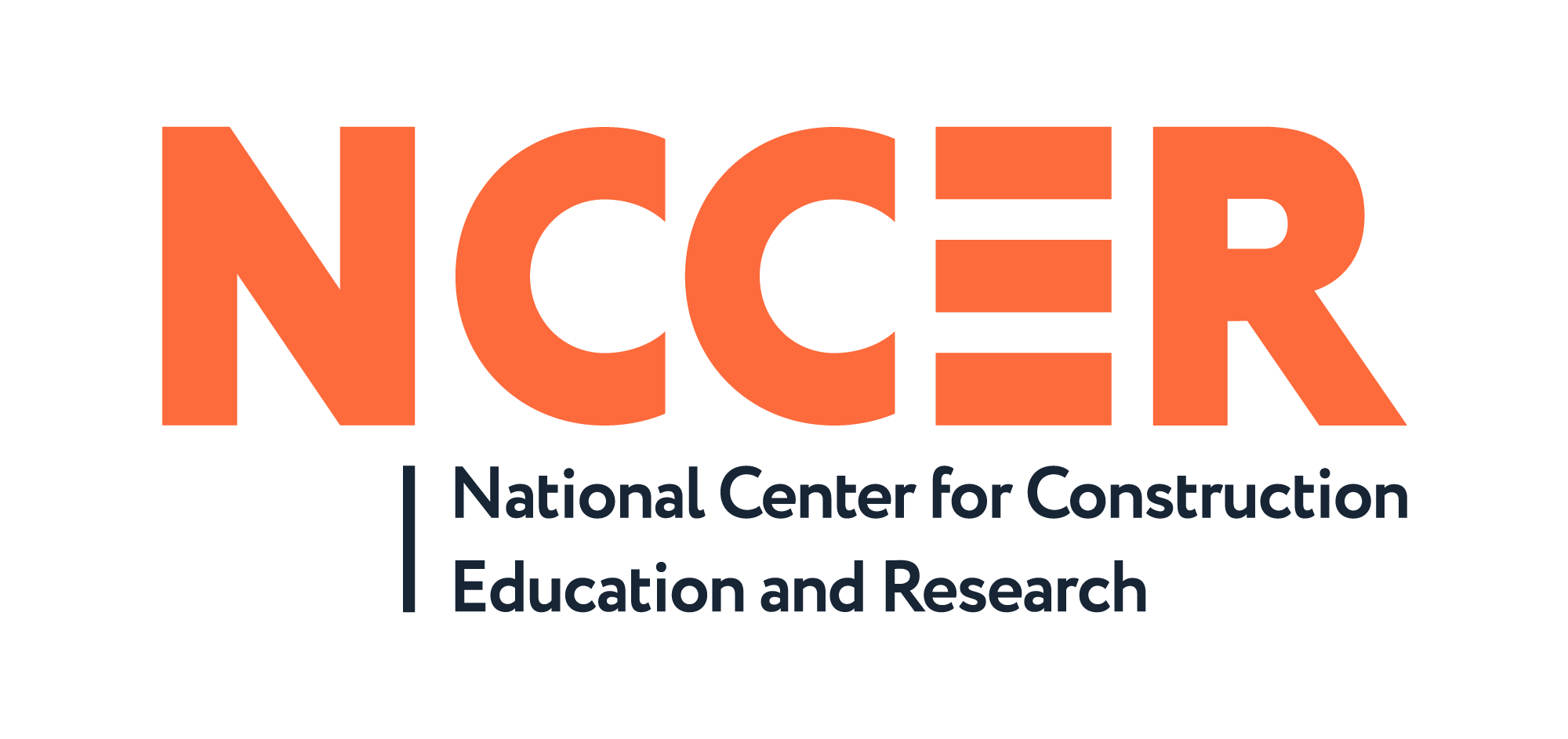 Introduction
Introduction
The Arizona Department of Education (ADE) represents all 1100 high schools in the state of Arizona. Their career and technical education (CTE) division is responsible for preparing students to enter the workforce with the academic and technical skills needed to compete successfully in the job market. Recognizing a major shortage of craft professionals in Arizona and the need for better career pathways for students, ADE CTE Program Specialist of Industrial Technologies Education, Cindy Gutierrez, reached out to her contacts to facilitate industry-education connections.
Making Connections
In January 2016, ADE took action to unify its CTE programs under industry-supported advisory councils to address program and workforce needs. The first step in the process was to create the Construction and Related Programs Advisory Council in addition to the existing Welding Advisory Council. Gutierrez used what she learned at the 2015 NCCER Construction Career Pathways Conference to forge industry connections by reaching out to RoseAnn Canizales, the President of the Arizona Construction Career Development Organization. Canizales, who had experience planning the annual Arizona Construction Career Days event, was able to connect Gutierrez with many industry representatives to serve on the two advisory councils.
After the formation of the Construction Advisory council, the next step was to identify the goals of the council which were: recommend common curriculum across the state that would allow CTE students to graduate with industry-recognized credentials, market construction as a whole and develop a webpage to connect industry and education. After a presentation by Dan Belcher, director of workforce development at NCCER, to the two councils, NCCER’s curriculum was recommended as the construction CTE curriculum for the state.
With the help of their industry advisory councils, ADE decided to plan its own Construction Career Pathways session during the Association for Career & Technical Education’s (ACTE) Arizona 2016 Summer Conference. The primary focus of the session was to connect industry representatives with existing CTE programs in their area. Industry was able to provide structure, insight and career readiness to the programs, further benefitting their students. “There’s so much these students don’t know about the construction industry,” says Gutierrez. “But by having industry involved in education, it gives them a better opportunity to see what’s available.” Also, during the Construction Career Pathways session, both industry and education representatives were able to get connected on the NCCER connection map.
Joining Forces
Due to the suggestions of the industry advisory councils, the number of NCCER accredited programs was increased throughout the state. “NCCER accreditation was the easiest way assist our programs with our new state legislation to offer industry credentials, certification or licensure,” said Gutierrez, “And many of our programs were already using NCCER curriculum at the local level, so it was a natural fit.” In response to the new state legislation, the ADE became an NCCER Accredited Training Sponsor. While offering NCCER curriculum as an option towards credentials or certification has not changed Federal Perkin’s funding for CTE programs, it has opened doors for state-level funding. New state legislation also helped increase industry involvement in education. Industry professionals who wished to teach could now receive a full teaching certification if they had at least five years of industry experience and an industry-recognized credential. These new certifications allowed industry professionals with a real-world perspective to teach in CTE programs, providing students with more career readiness and hands-on knowledge.
Building Pathways
The Arizona construction industry had a vision that included a unified drive to recruit and train students for careers in construction, regardless of craft profession, union affiliation or location within the state. State educators envisioned that CTE programs would continue to grow and prepare students for well-paying careers. Together, these aspirations were realized through industry-education partnerships facilitated at the state level. Throughout Arizona, numerous high schools and colleges developed articulation agreements locally, while several colleges offer dual enrollment credits to high school students. Five colleges in the state also offer NCCER programs.
Summary
A contributing factor to the success of Arizona’s industry-education partnerships was the favorable state environment created by the industry advisory council recommendations. “With ideas from last year’s Pathways conference, we were able to move forward,” says Gutierrez. “It was very timely with what our state was looking to do.” Connecting industry to education was made possible through
leveraging common connections, and introducing industry organizations to CTE programs in their area made it possible to spread industry involvement throughout the state, including rural areas. Industry involvement in education provides many benefits. Gutierrez noted that industry contacts had very high enthusiasm, involvement and a unified outlook to partnering with education. Regardless of craft profession or union affiliation, industry partners were committed to recruiting and training more young people. Although the state partnership is still very young, Gutierrez is optimistic that it will continue to grow. “It all boils down to opportunities for the students, says Gutierrez. “The more industry people that we can get involved at the local level, the better it will be for students to
see what opportunities are available.”
